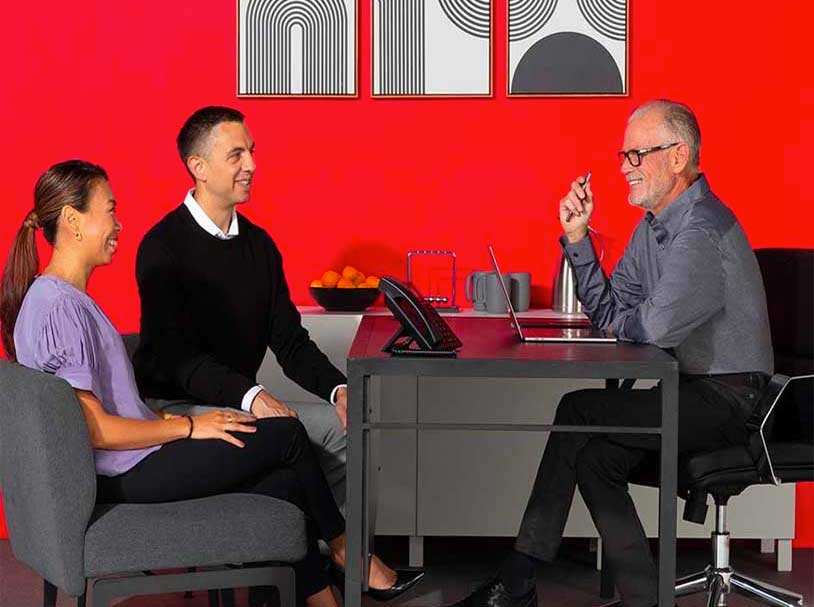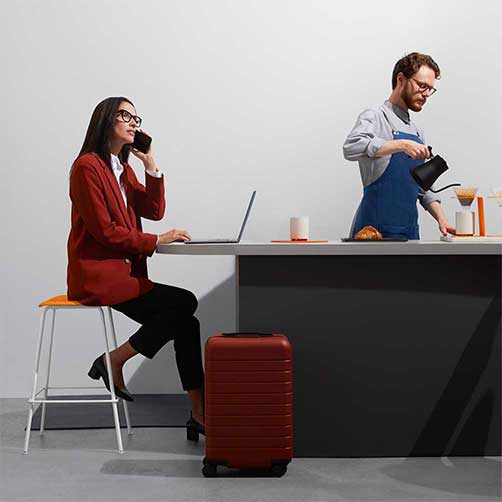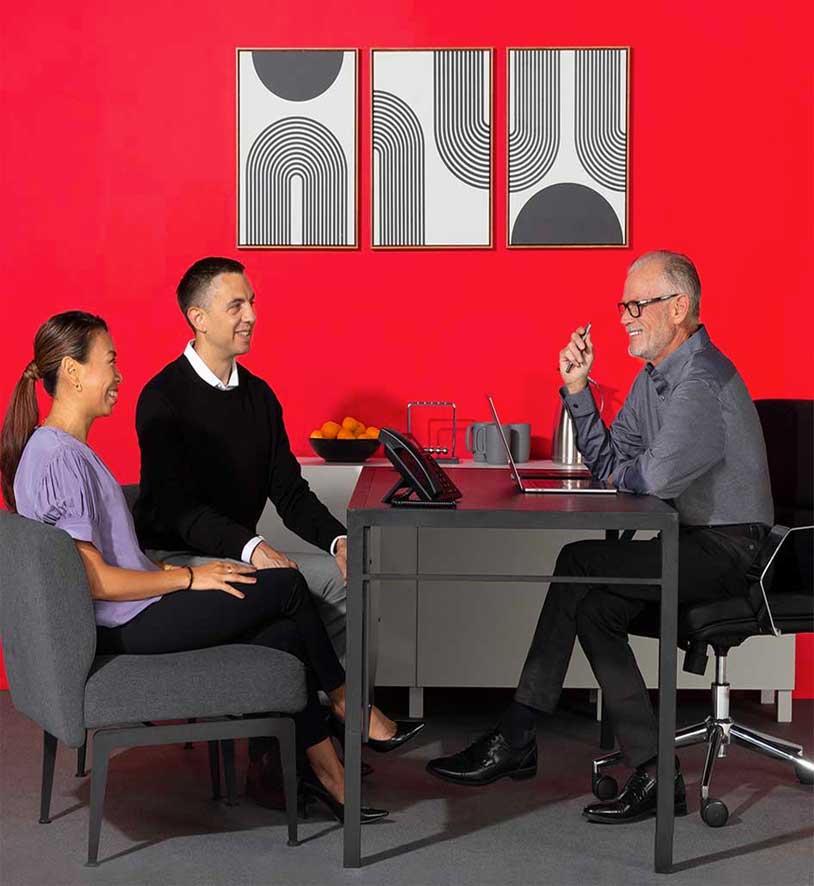Alfa, Bravo, Charlie: using the phonetic alphabet on phone calls

We’ve all done it: spelled out difficult proper names, street addresses, business names, even complicated email addresses using common words that help the listener know what we’re saying, since many letters and words sound alike over the phone.
For example, the letters S and F get confused, as do M and N, and B and D, along with words such as tin, thin, fin and pin. So if you live on Mondegreen Street, perhaps you’re accustomed to spelling out the name over the phone by saying something like, “M as in Mary, O, N as in Nancy, D like dog, E like Eve, G as in George, R, E like Eve, E like Eve, N as in Nancy.”
This is helpful, though a bit cumbersome—and may still confuse the listener.
But there’s a foolproof solution: Use a phonetic alphabet. Phonetic alphabets are code words that replace letters and come in a variety of forms, including military alphabets and a police alphabet. That’s why, if you happen to hear someone on a military radio call out, “Whiskey Echo (apostrophe) Lima Lima (space) Romeo Echo November Delta Echo Zulu Victor Oscar Uniform Sierra (space) Alfa Tango (space) Zero Eight Zero Zero (space) Hotel Oscar Uniform Romeo Sierra Stop” what they’re actually saying is, “We’ll rendezvous at 0800 hours.”
It does take training.
Alfa Bravo Charlie: learning your radio telephony ABCs
A century ago, radio transmissions were an essential form of communication, and mistakes could have serious consequences. In wartime, the slightest communication error can cost lives.
Phonetic alphabets were developed for precisely this reason. With background noise, distortion and a fluctuating signal, all of which are common both on battlefields and in the air, clear communication is vital. The military alphabet (also known as the NATO alphabet) enables unambiguous transmission in demanding circumstances.
While it’s unclear when the first phonetic alphabet was created and by which country, the U.S. Naval History and Heritage Command website says an early version appears in the 1913 edition of “The Bluejackets’ Manual.” This was just before the start of World War I.
In the 1920s, the International Telecommunications Union (ITU) developed a version using city, state and country names to facilitate telegram communication.
In 1941, the U.S. adopted the Joint Army/Navy Phonetic Alphabet, dubbed the Able Baker alphabet because of the first two code words. And in 1943, the British Royal Air Force switched to this version, as well.
The International Air Transport Association (IATA) came up with a version that incorporated sounds common to English, French and Spanish that went into effect in 1951 for civil aviation only, but is very similar to the alphabet currently used by NATO.
Since 1956, the International Radiotelephony Spelling Alphabet (IRSA) has been the official phonetic alphabet of NATO and all allied countries. It was developed by the International Civil Aviation Organization (ICAO) after years of testing the code words in various common dialects.
Below is the phonetic alphabet chart as it’s evolved. Compare the similarities and differences across time and platforms:
| Letter | U.S. Navy | ITU | Joint Army/Navy | IATA | IRSA |
|---|---|---|---|---|---|
| A | Able | Amsterdam | Able | Alfa* | Alfa* |
| B | Boy | Baltimore | Baker | Bravo | Bravo |
| C | Cast | Casablanca | Charlie | Coca | Charlie |
| D | Dog | Denmark | Dog | Delta | Delta |
| E | Easy | Edison | Easy | Echo | Echo |
| F | Fox | Florida | Fox | Foxtrot | Foxtrot |
| G | George | Gallipoli | George | Gold | Golf |
| H | Have | Havana | How | Hotel | Hotel |
| I | Item | Italia | Item | India | India |
| J | Jig | Jerusalem | Jig | Juliett* | Juliett* |
| K | King | Kilogramme | King | Kilo | Kilo |
| L | Love | Liverpool | Love | Lima | Lima |
| M | Mike | Madagascar | Mike | Metro | Mike |
| N | Nan | New York | Nan | Nectar | November |
| O | Oboe | Oslo | Oboe | Oscar | Oscar |
| P | Pup | Paris | Peter | Papa | Papa |
| Q | Quack | Quebec | Queen | Quebec | Quebec |
| R | Rush | Roma | Roger | Romeo | Romeo |
| S | Sail | Santiago | Sugar | Sierra | Sierra |
| T | Tare | Tripoli | Tare | Tango | Tango |
| U | Unit | Uppsala | Uncle | Union | Uniform |
| V | Vice | Valencia | Victor | Victor | Victor |
| W | Watch | Washington | William | Whiskey | Whiskey |
| X | X-ray | Xanthippe | X-ray | eXtra | Xray |
| Y | Yoke | Yokohama | Yoke | Yankee | Yankee |
| Z | Zed | Zurich | Zebra | Zulu | Zulu |
*Alfa and Juliett are unconventional spellings to avoid confusion: alpha could be mispronounced Alp-ha by someone who doesn’t recognize the “ph” sound as “f” and Juliet might be pronounced as joo-lee-ay instead of ending with a hard T sound.
Phonetic alphabet for police: the language of law enforcement
If you’ve ever watched a popular TV police show, you’re no doubt familiar with some stereotypical law enforcement language (“Step away from the car…”). Like the military, the police have a radio alphabet that allows officers to communicate crisply and quickly on the same page. So if they need to alert all officers in the area about a fugitive in a stolen vehicle, they’ll bark out, “Eight, Robert, John, Victor, Zero, Seven, Three” for license plate 8RJV073. We can already hear the sirens.
The police alphabet keeps it simple, using first names for the majority of code words. While the police alphabet is pretty standard across the U.S., some police departments may have some slight differences. Here’s the LAPD Radio Alphabet published by the Los Angeles Police Department:
Letter: code word
A: Adam
B: Boy
C: Charles
D: David
E: Edward
F: Frank
G: George
H: Henry
I: Ida
J: John
K: King
L: Lincoln
M: Mary
N: Nora
O: Ocean
P: Paul
Q: Queen
R: Robert
S: Sam
T: Tom
U: Union
V: Victor
W: William
X: X-Ray
Y: Young
Z: Zebra
Customer service: how the phonetic alphabet helps call centers
What are the business applications of the phonetic alphabet? You can use this information to improve communication with your customers. The dramatic increase in remote and hybrid work has necessitated similar growth in virtual call centers to meet this evolving need. Your team’s responses may well determine if you keep your customers happy—and keep them as customers.
With virtual call centers, all operators need to work from the same script and the same practices so your business can provide optimal responses and track metrics. One of the most effective call center tips is to train your team to use the phonetic alphabet, and make this integral to your IVR best practices. In addition to giving your call center team a dependable method for correctly identifying exactly what the customer is saying, the phonetic alphabet reduces concerns about accents or language barriers.
Using a phonetic alphabet is going to help your call center deliver the kind of personalized customer journey your customers want: a quick resolution without having to repeat information.
Choose the phonetic alphabet that ties in best with your business. If you don’t want to use a military alphabet, you can customize it or one of the others to align with your brand. Just make sure the words you select are unique enough that there won’t be any confusion with a similar-sounding word. The whole point of phonetic alphabets is to make your customer service phone calls as clear as possible to avoid mistakes.
Lettered: how the phonetic alphabet supports vanity numbers
Another intriguing way to use the phonetic alphabet is with vanity phone numbers. Business phone numbers in letters are much harder to transpose and far easier to remember, such as 1-800-FLOWERS or 1-800-GoFedEx. And they’re simple for someone to call, since everybody has an alphabet on the phone and a phone on their person these days.
The challenge here is coming up with a phone number that expresses what your business is or does in seven letters and then finding a lettered phone number that is not already in use—and that is also unlikely to be misheard as a rhyming word or misspelled.
If you have an ice cream parlor, for instance, you might try something like 1-800-I-SCREAM, which would be “India, Sierra, Charlie, Romeo, Echo, Alfa, Mike” in the official NATO alphabet. It’s best to come up with several choices, and then see what’s available, easy to pronounce and not confusing.
Alfa Lima Lima (space) Tango Hotel Echo (space) Bravo Echo Sierra Tango!

Learn more about how Ooma Office can help your business.
Thank you!
An Ooma Office Sales Representative will be in touch shortly.
866-573-0707


Learn more about how Ooma Office can help your business.
Just call 877-621-0515 or click this to CHAT. Or, fill out this form and someone will reach out to you shortly.



